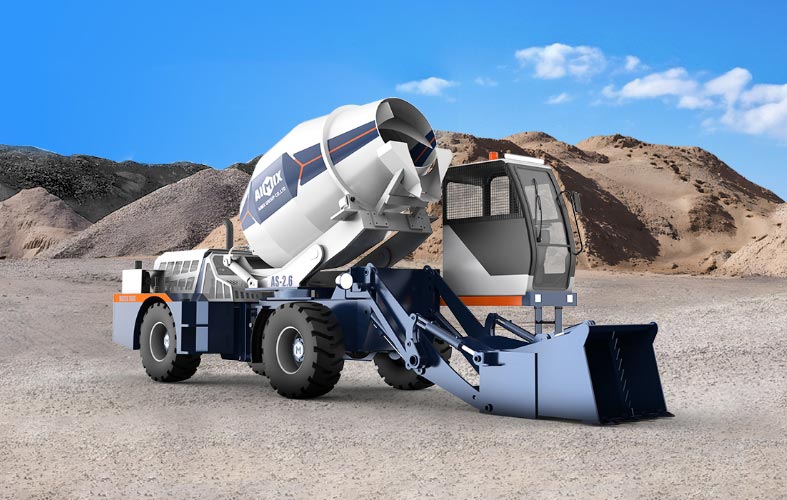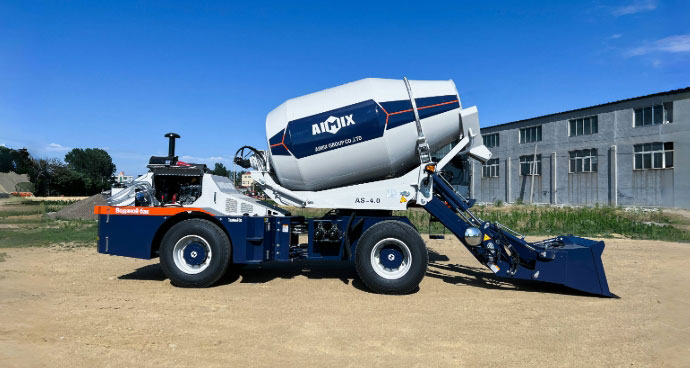In South Africa, where infrastructure development is a critical economic driver, the cost of construction equipment plays a pivotal role in project feasibility. Among these essential machines, self loading concrete mixers stand out for their versatility, mobility, and efficiency. However, one of the most significant factors influencing the self loading concrete mixer price is **fuel efficiency**. Rising fuel costs, environmental concerns, and operational sustainability have made fuel consumption a key consideration for buyers.
As the demand for cost-effective and energy-efficient machinery grows, manufacturers have responded by developing advanced fuel-saving technologies. These innovations directly impact the pricing of self-loading concrete mixers, making them a strategic investment for contractors seeking to balance **operational expenses and performance**. Understanding the relationship between fuel efficiency and equipment pricing provides valuable insight into making informed purchasing decisions in South Africa's construction industry.
Fuel consumption is a major component of a concrete mixer’s **total cost of ownership**. While the upfront cost of purchasing a mixer is a primary concern, ongoing operational expenses, especially fuel, significantly impact profitability. A fuel-efficient mixer consumes less diesel per cubic meter of concrete mixed, leading to substantial savings over the lifespan of the machine.
Modern self-loading concrete mixers are equipped with **advanced engine technologies** that optimize fuel consumption. Features such as automatic engine idling, high-pressure fuel injection, and intelligent hydraulic systems contribute to reduced fuel usage. Contractors who invest in fuel-efficient models benefit from **lower operational costs and increased project margins**.

Manufacturers continuously innovate to improve the fuel efficiency of self-loading concrete mixers. **Aerodynamic design, lightweight materials, and enhanced transmission systems** all contribute to lower fuel consumption. Additionally, hybrid and electric-assisted models are emerging as viable alternatives, reducing dependence on traditional diesel-powered engines.
These technological advancements, however, come at a cost. High-end self-loading mixers with **fuel-efficient engines and smart monitoring systems** tend to be priced higher than conventional models. Despite the initial investment, the long-term fuel savings justify the price premium, making them a cost-effective choice for contractors operating in South Africa's competitive construction sector.
South Africa’s fluctuating fuel prices directly affect the demand for fuel-efficient machinery. As fuel costs rise, contractors prioritize equipment that offers **better mileage per liter** to mitigate financial strain. The correlation between fuel prices and self-loading mixer affordability has led to a shift in purchasing trends, with buyers favoring models that balance **efficiency, durability, and cost-effectiveness**.
Furthermore, government regulations on emissions and fuel consumption play a role in shaping the market. Stricter environmental policies push manufacturers to develop compliant engines, which, while more expensive, offer long-term operational benefits. Investing in fuel-efficient mixers aligns with **both regulatory requirements and financial prudence**.

Contractors must weigh the **initial purchase price against long-term savings** when selecting a self loading concrete mixer for sale south africa. While fuel-efficient models may demand a higher upfront investment, the reduced fuel expenses and lower maintenance costs result in a better return on investment over time.
Additionally, many financing options are available for acquiring fuel-efficient mixers, helping businesses manage costs while reaping the benefits of lower fuel consumption. The key lies in understanding **total lifecycle expenses**, ensuring that the chosen mixer meets both budget constraints and performance expectations.
Fuel efficiency has become a defining factor in the pricing of self-loading concrete mixers in South Africa. With fuel costs steadily rising and environmental regulations tightening, the demand for **economical and sustainable construction equipment** is at an all-time high. Advanced engine technologies, innovative design features, and market dynamics all contribute to the overall cost of these machines.
For contractors and businesses, the decision to invest in a fuel-efficient self-loading mixer is more than just about price—it is about **long-term profitability and sustainability**. By considering operational savings, environmental impact, and regulatory compliance, buyers can make well-informed choices that ensure efficiency and cost-effectiveness in their construction projects.